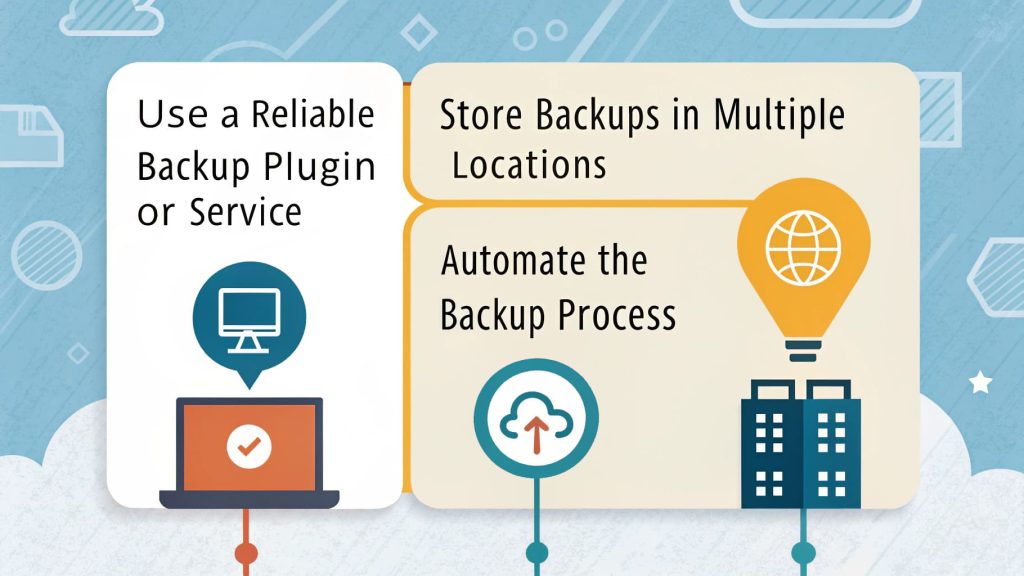📍 Introduction
Regular website backups are essential for protecting data, preventing downtime, and securing against cyber threats. Losing website data due to hacking, server failures, or accidental deletion can be devastating. This guide explores best practices for website backupsand how often they should be performed.
1️⃣ Why Website Backups Are Essential
A website backup ensures that you can quickly restore lost dataand prevent major disruptions.
🔹 Key Reasons to Back Up Your Website:
✔ Protection Against Cyberattacks– Malware or hacking can compromise your data.
✔ Recovery from Human Errors– Mistaken deletions or code errors can occur.
✔ Server Failures & Hosting Issues– Hardware failures can lead to data loss.
✔ Smooth Website Migrations– A backup ensures seamless site transfers.
📌 Real-World Data:60% of small businesses that lose their data shut down within six months(National Archives & Records Administration, 2024).
2️⃣ How Often Should You Back Up Your Website?
The frequency of website backups depends on website activity and update frequency.
📌 Recommended Backup Frequency:
✔ Daily Backups– For eCommerce, blogs, and frequently updated sites.
✔ Weekly Backups– For business sites with occasional updates.
✔ Monthly Backups– For static websites with minimal content changes.
✔ Real-Time Backups– For high-traffic sites and large databases.
📌 Action Step:Set up automated backupsbased on your site’s activity level.
3️⃣ Best Website Backup Strategies
A strong backup strategy includes multiple backup locations and automated scheduling.
🎯 1. Use a Reliable Backup Plugin or Service
✔ Popular backup tools: UpdraftPlus, Jetpack Backup, Acronis, CodeGuard.
✔ Choose incremental backupsto save storage space.
🎯 2. Store Backups in Multiple Locations
✔ Keep local backupson your computer or server.
✔ Use cloud storage solutionslike Google Drive, Dropbox, or AWS S3.
✔ Maintain offsite backupsfor disaster recovery.
🎯 3. Automate the Backup Process
✔ Schedule automatic backups via your hosting provider or backup tool.
✔ Test backups periodically to ensure successful restorations.
✔ Keep a minimum of 3 recent backup versionsat all times.
📌 Real-World Data:Websites that automate backups reduce data recovery times by 80%.

🚀 Conclusion
Website backups are a critical security measureto prevent data loss and ensure business continuity. By implementing frequent automated backups, using multiple storage locations, and testing recovery processes, businesses can safeguard their online presence.
Website backups are key to website maintenance, helping protect your business from data loss and potential downtime. Regular backups, practical storage solutions, and recovery testing ensure your site remains secure and your business stays operational even during unexpected disruptions.
📌 Next Steps:
✅ Set up automated daily or weekly backups.
✅ Store backups in at least two secure locations.
✅ Need assistance? Contact our Website Maintenance Servicesteam today!

